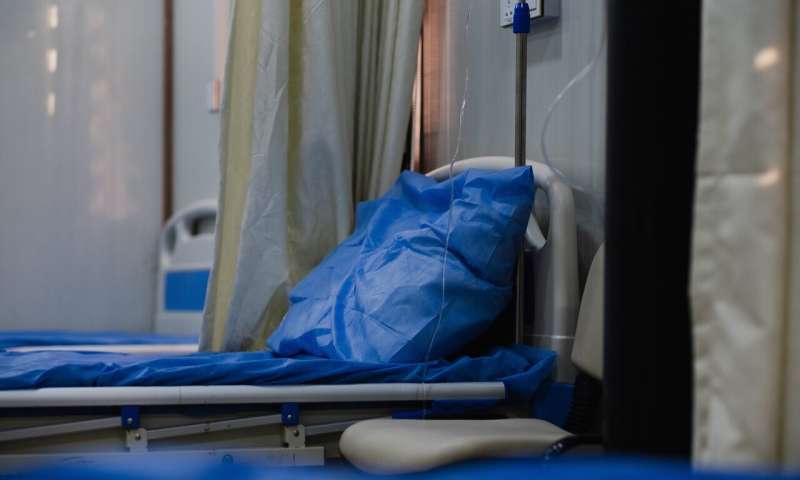
A routine test used to monitor patients' breathing may be unreliable and putting them at risk, a study suggests.
Incorrect results can mean clinical staff fail to spot how unwell a patient with respiratory problems is becoming, researchers say.
This widely used method, which counts breaths over a 30-second period, fails to take account of people's irregular breathing patterns, the team says.
The practice—key to assessing risk in many COVID-19 cases—could be improved by increasing the time of measurement to two minutes, the study concluded.
A team from the University of Edinburgh focused on what is referred to as the respiratory rate, which is the measurement of the number of breaths a person takes in one minute.
The rate is measured in all patients who arrive to hospital feeling unwell, as part of what is known as a warning score chart.
Most clinical staff believe that counting breaths taken over a 30-second period will give a reasonable measure of the respiratory rate, the researchers say.
As breathing is not always regular, however, there can be a variation in the respiratory rate when measuring it over a short time period.
The team analysed recordings of breathing in 25 hospital patients to determine how wide this variation can be. Each recording was made for between 30 minutes and an hour in patients with illnesses that included respiratory, cardiac, neurological and urinary conditions.
Researchers sampled the recordings at random, many times, in the same way the way clinical staff might measure the breathing rate.
It was found that there was a large variation in the respiration rate for each patient—more than half of the measurements differed by more than three breaths per minute.
This change may sound small but, in 40 percent of cases, the incorrect rate would have meant the warning score chart was wrong.
The study is published in ERJ Open Research.
Dr. Gordon Drummond, Honorary Clinical Senior Lecturer, from University of Edinburgh, said: "The lack of accuracy in measurement of respiration rate could have an impact on a patient's treatment. We think accuracy would be improved by increasing the time of measurement to two minutes and using specialist equipment to measure respiratory rate."
Explore further
Citation: Patients' breathing test comes up short on accuracy, study finds (2020, September 28) retrieved 28 September 2020 from https://ift.tt/36dc1fm
This document is subject to copyright. Apart from any fair dealing for the purpose of private study or research, no part may be reproduced without the written permission. The content is provided for information purposes only.
"Short" - Google News
September 28, 2020 at 02:29PM
https://ift.tt/36dc1fm
Patients' breathing test comes up short on accuracy, study finds - Medical Xpress
"Short" - Google News
https://ift.tt/2QJPxcA
Bagikan Berita Ini














0 Response to "Patients' breathing test comes up short on accuracy, study finds - Medical Xpress"
Post a Comment